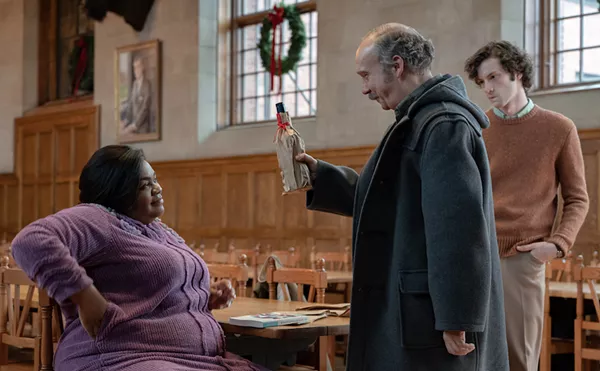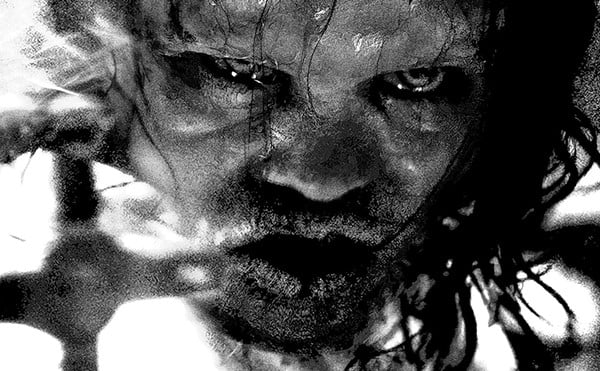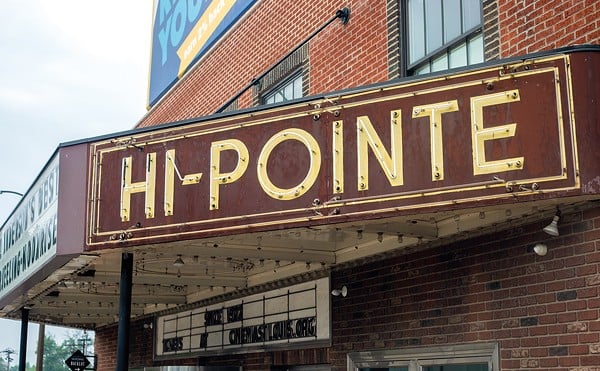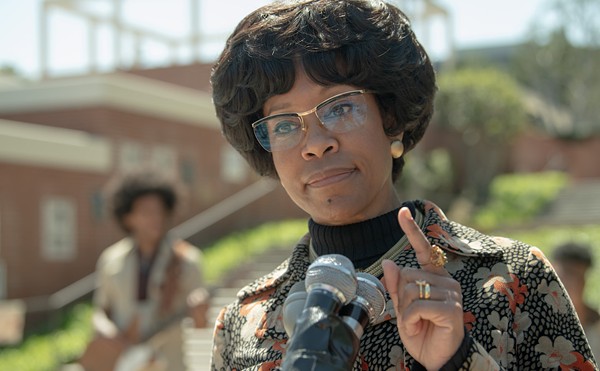Bad Education (unrated) Pedro Almodóvar. A movie within a movie by Spanish director Pedro Almodóvar, who displays his usual strengths -- zest, humor, visual beauty -- and weaknesses, including the failure to acknowledge the gravity of his subject. A young actor (Gael García Bernal) appears at the home of a childhood friend, now a film director (Fele Martinez), with a manuscript. The director reads the manuscript and discovers that it tells the tale of the two men as boys, at school, where they fell in love. But the actor is not what he seems, and a tale of sexual abuse by a priest morphs into a twisted plot of identity deception and manipulation. Bad Education sees itself as noir, but the material knows better, persisting in emotional depth despite the stylized trappings foisted upon it. The movie begins as a comedy, morphs into drama and only belatedly introduces its noirish subterfuge, cunning and death -- none of which is necessary or welcome. There is a great deal of life in Bad Education, and also promise, but its creepy ending betrays its emotional core. Screens at 7:30 p.m. Friday, November 19, at the Tivoli. (Melissa Levine)
Blind Shaft (unrated) Li Yang. This film, about a pair of itinerant miners who profit from a gruesome extortion scheme, is a noble endeavor. Producer-writer-director Li Yang, a man committed to telling the story of China's desperate underclass, risked his life (and a ban in China) to do it, logging countless hours deep below the earth in illegal and dangerous mines, and facing down armed policemen accusing him of journalism. As a film, it is a tidy piece of work: well crafted and spare, with an impeccable plot and a sharp central conflict, involving two protagonists whose unsavory relationship is triangulated by the arrival of a third. Unfortunately, Blind Shaft is also miserably bleak, with portrayals of poverty, corruption and icy violence delivered in a near-constant stream of grays and blacks. Made with obvious integrity and the power of purpose, it's the kind of film that's easy to appreciate -- and one hopes that it will bring the appropriate amount of attention to the crisis of poverty in China. But it's hard to imagine anyone actually enjoying it. Screens at 3 p.m. Sunday, November 14, and at 9:30 p.m. Tuesday, November 16, at the Hi-Pointe. (Melissa Levine)
Bluegrass Journey (unrated) Ruth Oxenberg. Ruth Oxenberg's documentary, set mainly at the Grey Fox Bluegrass Festival in New York state, serves as a more yeomanlike, informative musical primer than 2000's Down from the Mountain, an homage to the breakaway success of the O Brother, Where Art Thou? soundtrack. While megastars like Emmylou Harris, the Cox family and Alison Krauss are nowhere to be found in Oxenberg's spare, lovely film, heavyweights such as Peter Rowan, Nickel Creek, Dolly Parton and the Del McCoury Band are -- whether it be on the stage of the Grey Fox or jamming at 3:30 a.m. in a Louisville hotel room for a couple dozen lucky conventioneers. Like punk, bluegrass is music made for the people, by the people -- something Oxenberg encapsulates brilliantly in her last sequence. Unlike punk, bluegrass is an art form that is humble, traditional and meticulous, qualities that resonate in every frame of this beautiful little film. Screens at 1 p.m. Saturday, November 13, at the Tivoli. (Mike Seely)
Built for Speed: The Coral Court Motel (unrated) Bill Boll and Shellee Graham. Way before its 1993 closure and subsequent demolition, the Coral Court Motel on Watson Road had it all: great American road-trippers, kidnappings, nostalgia, mob shenanigans, architectural renown, hourly rates, shades-drawn decadence, noontime boss-secretary philandering -- and a secret underground entrance to boot. If ever there was an expired edifice round these parts that merited its own documentary film, it's this one. And seasoned local filmmaker Bill Boll and Route 66 archivist/producer Shellee Graham have meticulously and brilliantly captured the goods in their engrossing feature Built for Speed: The Coral Court Motel. Boll's collaboration with Graham -- financed through a Committee for Access and Local Origination Programming (CALOP) grant from the University City municipal government -- has given Boll, a close friend and frequent collaborator of Mayor of the Sunset Strip director George Hickenlooper, a newfound understanding of Route 66 fanatics. "Before I got involved in this, I never got it," the 39-year-old Boll says of mother-road enthusiasts. "Now I still think they're out of their minds, but I get it. To understand Route 66 is to understand that the pace of change is going so rapidly that we're not preserving history anymore. History is being paved and painted over before it can be recognized as being history." Screens with the short film "Pushin' Ink" at 4 p.m. Sunday, November 14, at the Tivoli. (Mike Seely)
The Burial Society (R) Nicholas Racz. Delivering a surprisingly fresh twist on the "man on the run from the mob" movie, first-time feature writer-director Nicholas Racz subverts expectations by making every character a nebbishy Jew, up to and including "Jewish mafia" kingpin Seymour Cassel. Still, this isn't Hebrew Hammer 2 -- the humor is there to increase the viewer's empathy and thus pump up the suspense factor. Sheldon (Rob LaBelle, who played Phil Spector in What's Love Got To Do With It) is an accountant on the run from his legally suspect former employers, and he opts to lay low by joining the Chevra Kadisha, a group of older Jewish men who prepare dead bodies for proper religious burial. Sheldon isn't quite as innocent as he initially appears, but he's so far from being a Schwarzenegger that it's easy to build tension around him, since he looks like he could be killed with one punch. The film plays like an old episode of Alfred Hitchcock Presents, with a resolution that's truly unpredictable. Mazel tov! Screens at 7 p.m. Monday, November 15, at the Hi-Pointe. (Luke Y. Thompson)
Cuba Libre (unrated) Juan Gerard. Reflecting back on his life as a much-loved, spirited eight-year-old, director/co-writer Juan Gerard affectionately, if sometimes awkwardly, relates autobiographical events in 1958 Cuba leading up to Batista's exit. Set amid the rich ambience of Holguín , Cuba Libre meanders for over an hour, digressing into coming-of-age fantasies and subplots with taunting, contentious boys before hitting its stride and capitalizing on the more volatile political milieu waiting to erupt. An international cast provides ample support, led by Harvey Keitel (who championed this film's creation) as a vivacious, enigmatic grandfather and Gael García Bernal as a dedicated revolutionary. Irresistible Cuban music and a wealth of classic movie references buoy weaker scenes, while a cinema and town thrust into darkness establish historical specificity. Balancing that, a nod to the archetypal is woven throughout events via a homeless man serving as a Greek chorus commenting on personal and political dynamics. A warm, suffused glow in several scenes and some effective visual editing nicely capture pleasant remembrances interrupted by startling, violent regime change. Screens at 9:15 p.m. Friday, November 12, and 7 p.m. Saturday, November 13, at the Tivoli. (Diane Carson)
Dear Frankie (PG-13) Shona Auerbach. Shona Auerbach's quiet drama about a deaf nine-year-old (Jack McElhone) in small-town Scotland manages, for the most part, to avoid the usual traps -- emotional manipulation and outright sentimentality. The hanky count will get up there for some, but Auerbach never pushes it. The boy can lip-read, but his real lifeline is a series of letters he writes to his absent father, whom he believes to be away at sea. Truth be told (but not to Frankie), his mother Lizzie (Emily Mortimer) is in retreat from his abusive dad, and she's the one responding to the boy's plaintive letters. The charade cannot last, of course, and when Lizzie concocts a scheme to shield her son from reality, there are useful complications. Happily, the director and writer Andrea Gibb treat little Frankie with as much dramatic respect as the grown-up characters, and he saves the movie from killing sweetness. With Gerard Butler as the anonymous sailor Lizzie hires to stand in as the boy's dad. Screens at 4:30 p.m. Saturday, November 13, at the Tivoli. (Bill Gallo)
Distant (unrated) Nuri Bilge Ceylan. This quietly effective study of isolation and loneliness walked off with the Grand Prize at the 2003 Cannes Film Festival (its two leads shared the top actor prize as well). It concerns Mahmut, a melancholy photographer who is bored with his uninspired commercial assignments and pines for his ex-wife. Lonely and bitter, but seemingly unwilling to change his situation, he finds his solitude invaded by his cousin Yusuf, who has come to Istanbul in the hopes of finding a job. Uncertain how to go about looking for work -- or perhaps too lazy -- Yusuf wanders around aimlessly, his very presence an irritant to Mahmut. Although the two rarely speak, they quickly get on one another's nerves. Told in lengthy, static shots, with little dialogue but much ambient sound, the film beautifully captures the frustration, ennui and despair of two embittered souls who find themselves stuck in life but unable to move forward -- or even to share their sadness with each other. In Turkish with English subtitles. Screens at 9:45 p.m. Wednesday, November 17, and at 5 p.m. Friday, November 19. (Jean Oppenheimer)
Falling Angels (unrated) Scott Smith. Based on Barbara Gowdy's novel, Falling Angels presents three daughters acting out in different ways -- from sexual rebelliousness to overdependency -- as a reaction to their mentally unstable parents. Unfolding through flashbacks initiated during the mother's wake, the rambling story capitalizes cleverly on late-1960s fears and fashions, with a militaristic father tyrannically forcing the family to endure days in his nuclear fallout shelter. Struggling to protect and accept their unhinged lives, the teenage girls dominate discursive, episodic subplots with naturalistic acting expertise beyond their years. This makes the consistently superficial treatment disappointing, since these young women could handle considerably more complex and demanding emotional revelations. So, for that matter, could the accomplished Miranda Richardson, who wanders vacant-eyed and distracted as the mother medicating herself through a mysterious depression, the source of which comes late and feels artificially added. But though Falling Angels never soars, its earnestly empathetic look at the deep-seated consequences of dysfunctional parents does avoid minimizing or sophomorically "solving" the psychological ripple effects of such formative experiences. Screens at 7 p.m. Friday, November 12, and at 5 p.m. Saturday, November 13, at the Hi-Pointe. (Diane Carson)
Ganges: River to Heaven (unrated) Gayle Ferraro. Gayle Ferraro's documentary is an intimate portrait of the holiest stretch of the sacred Ganges River. According to Hindu belief, those who die there will be taken directly to Heaven, and the film follows four families who have brought ailing elders to a hospice on the riverbank as well as those who minister to the dying: those who work at the hospice, those whose caste duty it is to perform last rites, those who make a living selling kindling for the funeral pyres. It also explains the central role of the Ganges in the Hindu mythology and touches upon the threat that the river now faces from pollution: It is not only a holy place but a place to bathe, to do laundry and -- as a scientist makes clear with a single, almost unbelievable statistic -- to defecate. Ferraro wisely refrains from comment, allowing her subjects and her stunning, although by its nature grim, cinematography to tell a story that is somber without being sentimental and fascinating without being exploitative. Screens at 7 p.m. Tuesday, November 16, and at 9 p.m. Wednesday, November 17, at Webster University's Moore Auditorium. (Ian Froeb)
Girl Play (unrated) Lee Friedlander. Why do the red states hate us so? Is it because our insistence on a welfare state is at odds with their values of hard work and personal responsibility? Or is it because our progressive attitudes offend their evangelical Protestant sensibilities? Maybe it's because we continue making movies like Girl Play. An adaptation of a stage play, Lee Friedlander's film stars Robin Greenspan and Lacie Harmon as, respectively, Robin and Lacie, two comedians cast in a play in which they are lovers. Of course, they fall in love, jeopardizing Robin's six-year marriage and Lacie's dread of commitment. A stale plot, made worse by the film's adaptation of the source material's staging: Robin and Lacie stand side-by-side on a bare stage, delivering long-winded monologues of banal self-analysis. In fact, each woman is so busy analyzing herself that we never get to know either character, nor do we believe in her love for anyone but herself. At any rate, it's difficult to take much of the two women's self-analysis seriously. Would anyone really think so hard when she has a perky boob pressed against her face? At last, something the red and blue states can agree on. Screens at 7:30 p.m. Friday, November 12, and at 7:15 p.m. Saturday, November 13, at the Tivoli. (Ian Froeb)
Hard Goodbyes: My Father (unrated) Penny Panayotopoulou. In her psychologically perceptive feature debut, writer/director Penny Panayotopoulou does an extraordinary job of charting the journey of one ten-year-old boy as he comes to terms with his father's death. Set in Athens in 1969, the film focuses on Elias (Giorgos Karayannis), who shares an adventurous spirit and a love of Jules Verne with his father Christos (Stelios Mainas), a traveling salesman whose long absences from home have strained his marriage. After promising Elias that he will be back in time for Neil Armstrong's historic moon landing, Christos is killed in a car accident. Elias refuses to believe it and takes to wearing his father's clothes, holding conversations as if his father were still there and writing letters to his grandmother in his father's name. Panayotopoulou and her remarkable cast get every emotion and every action right. This sad, humorous, sensitive, but never sentimental film should appeal to fans of the exceedingly charming Spanish film Valentín and Lasse Hallstrom's delightful but heartbreaking 1985 film My Life as a Dog. In Greek with English subtitles. Screens at 6:45 p.m. Sunday, November 14, and at 9:30 p.m. Tuesday, November 16, at the Tivoli. (Jean Oppenheimer)
Inbred Redneck Alien Abduction (unrated) Patrick Voss. Ever wondered what would happen if a bunch of thirteen-year-old Midwestern boys in the throes of puberty were handed a Super8 and told to make a ninety-minute film about alien abductions in Arkansas? If this has been a burning question of yours for some time, prepare to have it answered by this locally produced Patrick Voss schlockfest. But for the vast majority who have paid little mind to the thirteen-year-old-with-camera predicament, this film is best left skipped. Voss' abominable creation comes up short on just about every level: not funny enough to succeed as sci-fi camp, not gory enough to live up to Sub Rosa Extreme's much-ballyhooed blood-'n'-guts standards, not gratuitously sexy enough to titillate and not well-acted enough (save for Robert Lloyd as a government-agency head known as "Mr. Butt") to justify ever making it to the big screen. If there's any question as to whether SLIFF's curators owe some debt to Eric Stanze and his mildly successful lower-than-lowest-common-denominator production house, this film answers it, and the answer is a resounding no. Screens at midnight Saturday, November 20, at the Tivoli. (Mike Seely)
Last Goodbye (unrated) Jacob Gentry. A thoroughly engrossing, nonlinear, darkly comic cliffhanger by Atlanta filmmaker Jacob Gentry that should be required viewing for aspiring local filmmakers. Gentry turns Atlanta into a southeastern version of Tinseltown, complete with a burning romance between a rock star and a TV starlet whose character is loosely (and rather hilariously) based on Buffy the Vampire Slayer. Turns out theirs is a love quadrangle, with a has-been, alcoholic stage actor and a jailbait-Avril Lavigne type getting emotionally dumped on by the aforementioned duo. Short but sterling appearances by David Carradine and Faye Dunaway lend considerable gravitas to this infectiously peculiar indie genre-buster, which makes cosmopolitan Atlanta look as ice-cool as Gotham City. Had David Lynch directed the overlooked Southern psychedelic gem Big Bad Love, this is about what you'd get, and the gettin' is really, really good. Screens at 9:45 p.m. Friday, November 19, at the Tivoli. (Mike Seely)
Merci Docteur Rey (unrated) Andrew Litvack. Dianne Wiest is either playing willfully campy or merely aware she's sniffing bad cheese in this Franco-American comedy that's no laughing matter. She's an aging opera diva performing in a Parisian production of Turandot and blissfully unaware that her son, Thomas (Stanislas Merhar), is renting himself out to male personal-ad pickups. Thomas, meanwhile, is unaware that the father (Simon Callow) he thought dead is actually the same man who rented him to hide in his closet; Thomas sees his old man stabbed, which sends him into therapy with an actress (Jane Birkin) who believes she's Vanessa Redgrave and assumes the identity of Doctor Rey, who drops dead during a session. If that ain't enough, Redgrave herself shows up, as does Jerry Hall, and if all of this sounds like a nutty mishmash, that's giving it too much credit. Wiest in particular seems baffled in this debut from writer-director Andrew Litvack, whose inability to direct is outweighed only by his inability to write anything remotely witty, enlightening or engaging. Calling this a farce would be, well, a farce. Screens at 9:45 p.m. Sunday, November 14, at the Hi-Pointe. (Robert Wilonsky)
Mix (unrated) Steven Lovy. The "American in Europe" film has been done to death, and Mix, the story of an American DJ finding himself in Budapest, carries a lot of bad baggage: It's overly arty and carries more portent than it ought to. However, the film also has enough sex and drug use to fill a Bret Easton Ellis novel and an intriguing soundtrack that mixes, if you will, Eastern European tunes with drum & bass and other club styles. Dorka Gryllus' performance (as Bea, that dark, mysterious girl whom every American boy dreams of meeting in Europe, but never does outside movies like this), combined with the flash and heat of the night-world setting, makes it easy to ignore the pretentious notes and keeps Mix very watchable. Screens at 7:30 p.m. Thursday, November 18, and at 9:45 p.m. Saturday, November 20, at the Tivoli. (Jordan Harper)
Sexual Life (R) Ken Kwapis. For a movie with such a provocative title and such arousing talent (Tom Everett Scott, Anne Heche and Azura Skye, for starters), Sexual Life is downright boring. That's what's so infuriating about it. If we wanted to watch something more boring than our own sex lives, we would rent a Vivid Video, for God's sake! Pursuing ground previously trod more eloquently by 2004's underrated We Don't Live Here Anymore, Sexual Life follows the infidelities of one disenchanted lover to the next, until -- surprise! -- cheating hearts come full circle. The cast is generally solid, although Skye is unbelievable as a prostitute, and especially as a nineteen-year-old one. Veteran Belleville, Illinois, director Ken Kwapis (He Said, She Said, episodes of Freaks and Geeks and The Bernie Mac Show) obviously knows what he's doing -- the pacing is good and the shots are often pretty -- but he's gone for the Woody Allen ensemble love-epic when he should be taking the Richard Linklater minimalist approach. But it's not all bad -- Steven Williams (21 Jump Street) shows up for a cameo! Screens at 7 p.m. Thursday, November 11, at the Hi-Pointe. (Ben Westhoff)
Since Otar Left (unrated) Julie Bertucelli. In the Republic of Georgia, elderly Eka Goguebachvili (90-year-old Esther Gorintin, stooped and slow-moving but full of life) nostalgically pines for the Stalin era, when her water and power worked. Her son Otar is doing better for himself financially, but to do so he's had to go west, to Paris. Otar will soon leave in more ways than one -- Eka's daughter Marina (Nino Khomasuridze) is the first to hear the news that her brother has died. Convinced that the news would be too unbearable for Eka, who may not live much longer anyway, she conspires to keep the death a secret. This requires some planning, as the letters from Otar need to keep coming, and anyone else who knows must either be avoided or brought in on the secret. Similar to Good Bye, Lenin! in setup and allegory to the lies of Stalinism, Otar is a whole lot slower, almost unbearably so for the first half. Hang in there, though; there's a strong emotional payoff at the end. Screens at 7 p.m. Wednesday, November 17, and at 6 p.m. Sunday, November 21, at the Hi-Pointe. (Luke Y. Thompson)
State's Evidence (unrated) Benjamin Louis. With his debut film, director Benjamin Louis aspires to more than the average angst-ridden teen flick and ends up with one long, though not totally unbearable, public service announcement. Set in the LA suburb of Glendale, State's Evidence introduces fifteen-year-old Scott Beyers, a brainy high school sophomore who, out of sheer boredom, decides to commit suicide and capture it all on videotape. Upon hearing his plan, Scott's five best friends want in -- each for their own reason -- but must agree to film every moment of their last day on earth. Inspired at first by the notion that once faced with the reality of death they would be free, the teens soon learn that once faced with the reality of death, we do, in fact, become our true selves. And it is here where this film is most poignant -- and most frightening. Screens at 1 p.m. Sunday, November 21, at the Tivoli. (R.L. Nave)
Tarnation (unrated) Jonathan Caouette. Essentially a work of editing, Tarnation was crafted by Jonathan Caouette, a man who has been filming his difficult life ever since he was eleven. At 31, he culled 160 hours of footage for the essential 1.5, to tell the story of his childhood, his family and his consciousness. Caouette's mother suffered from severe mental illness, so Jonathan was raised by his grandparents, which did not protect him from witnessing his mother's rape. He also spent time in foster care, where he was beaten. Amid this wreckage, Jonathan developed a glamorous world of make-believe as well as depersonalization disorder, an affliction that makes everything seem like a dream. Tarnation's most notable aspect is its form -- a jumbled montage of Super8, video, stills and digital video with titles. Caouette is replicating his disorder, showing what the world looks like to him. But there's too much text, and it's too explanatory. Also, the film often feels like a music video, running into a blur of images and sound. Screens at 9:30 p.m. Wednesday, November 16, and at 9:45 p.m. Thursday, November 18, at the Tivoli. (Melissa Levine)
Unknown Soldier (unrated) Ferenc Tóth. Director Ferenc Tóth's protagonist, Ellison Jones (Carl Louis), is neither trigger-happy gangster nor debonair corporate lawyer. All he wants right now is to make enough money to eat and get an apartment with his girlfriend. After his father dies unexpectedly, Ellison is thrust into the streets of Harlem and forced to work odd jobs, sell bootlegged CDs and find a different place to sleep every night, which sometimes means the street. Basically: hustle. At his wit's end, Ellison follows the advice of neighbors and walks into an Army recruiting office to enlist, thinking it's a guaranteed gig -- only to find out that Uncle Sam doesn't want soldiers like him with chronic asthma. Ouch! He winds up working for a local hood as his driver/personal assistant. Nevertheless, because of the values his father instilled in him, Ellison walks -- runs for his life, really -- away from a bleak, criminalistic future. Screens at 9:30 p.m. Thursday, November 18, at the Tivoli. (R.L. Nave)
Up for Grabs (unrated) Michael Wranovics. In the final game of the 2001 baseball season, San Francisco Giants slugger Barry Bonds hit his record-setting 73rd home run. That is undeniable. Patrick Hayashi emerged from the scrum in the right-field stands holding the potentially lucrative souvenir. That was recorded by a local television cameraman standing only a few feet away. Whether Hayashi took the ball fair and square or stole it from Alex Popov, whom the aforementioned recording seems to show catching the ball, is the subject of Mike Wranovics' stranger-than-fiction documentary. Popov has more than a dozen witnesses who claim that he had control of the ball, and in the recording Hayashi apparently bites a teenage boy's leg to get to the ball. Wait, though! Seems there may also be a second ball in the grassy kno -- er, Popov's glove, a ball with "SUCKER" written on it in black felt-tip pen. Wranovics doesn't reinvent the documentary telling this zany story. The film is mostly file footage intercut with interviews. But that's part of the film's attraction: Every key part of the story just happened to be filmed, and Popov, for one, never met a camera he didn't like. Sorry, Bull Durham and Major League. This is the funniest baseball film ever made. Screens at 3 p.m. Saturday, November 13, and at 5 p.m. Monday, November 15, at the Tivoli. (Ian Froeb)
Vodka Lemon (unrated) Hiner Saleem. This slow, stark and visually arresting movie isn't going to get any pulses racing, but it just might cast you under its chilly spell. Set in the bleak badlands of post-Soviet Armenia, Vodka Lemon portrays a frigid, snowed-in community of survivors trying to make the best of a barren world. Protagonist Hamo (Romen Avinian) visits his wife's grave to keep her abreast of the news, such as it is; meanwhile, he awaits a letter from his son in Paris, his only hope for income. (The letter comes; the income doesn't.) At the cemetery, Hamo meets Nina (Lala Sarkissian), a widow grieving the loss of her husband. The two move toward each other with shy and halting steps, all while attempting to scavenge an existence by selling their meager possessions. The cinematography is gorgeous, with wide shots of snowy banks and starry skies, and an occasional random element of quirky humor. The total dialogue must amount to fewer than 1,000 words, which feels right for the people and the landscape. Screens at 9:30 p.m. Sunday, November 14, and at 9:45 p.m. Tuesday, November 16, at the Tivoli. (Melissa Levine)
Word Wars (unrated) Eric Chaikin and Julian Petrillo. This charming, hilarious and brisk documentary traces the fates of four Scrabble hopefuls as they journey toward (and through) the National Championships. Like other obsessives who have dedicated their lives to the pursuit of a single thing, the players are by turns quixotic, dogged, alarming, admirable and lovable. And like other disciplines requiring obsessive devotion, Scrabble exposes both the best and the worst in its subjects. From the three-time champion who uses Zen and tai chi to facilitate energy flow to the spliff-smoking Black Power advocate who resents the fact that he has to speak English at all, these "word freaks" far surpass any self-respecting grandmother with their outrageous skills, anagramming endless strings of letters and forming word after word you've never heard. It's too bad that all four protagonists are men, though this seems more the nature of the beast (no women in the top ranks) than the fault of director Eric Chaikin. Finally, check out the excellent, humorous graphics: They serve as a gently teasing voice of reason amid the madness. Screens at 9 p.m. Tuesday, November 16, and at 7 p.m. Wednesday, November 17, at Webster University's Moore Auditorium. (Melissa Levine)
Yes Nurse! No Nurse! (unrated) Pieter Kramer. Sound like a porn flick? With nurses, majorettes and miniskirts aplenty, this Dutch musical could veer in that direction. Instead it sticks with camp, to uninspiring effect. Nurse Klivia (Loes Luca) runs a boarding house occupied by a merry, eccentric lot: a ballet dancer, a mad chemist and an Abbott-and-Costello pair with no apparent purpose in life. The group wreaks wacky havoc, much to the chagrin of its simpering landlord (Paul R. Kooij), who takes them to court in the attempt to evict. When a compulsive burglar enters the house and a flaming hairdresser opens up shop in town, the plot thickens. Maybe a great deal gets lost in translation, either from television to film or Dutch to English. Because while the movie clearly has winsome intentions, it's little more than a sitcom, as superficial as it is mediocre. Neither the choreography nor the music is inspired; the candy-colored costumes and sets are familiar; and the lackadaisical script can barely be bothered to lift itself off the page. Screens at 7:30 p.m. Saturday, November 13, at the Tivoli. (Melissa Levine)
Zen Noir (unrated) Marc Rosenbush. Heavy on the Zen, light on the noir, this film will appeal far more to fans of weighty (or not-so-weighty) philosophical films than people searching for a potboiler. The story of a nameless, stereotypical private detective who has his hard-edged "Western" view of the world challenged when he investigates a murder in a Buddhist temple, Zen Noir has some fun poking holes in the worldview of the obviously metaphorical gumshoe. But it gets pretty heavy-handed after a while, and as the private dick falls deeper and deeper into confusion, you might too. Screens at 7:15 p.m. Thursday, November 18, at the Tivoli. (Jordan Harper)





